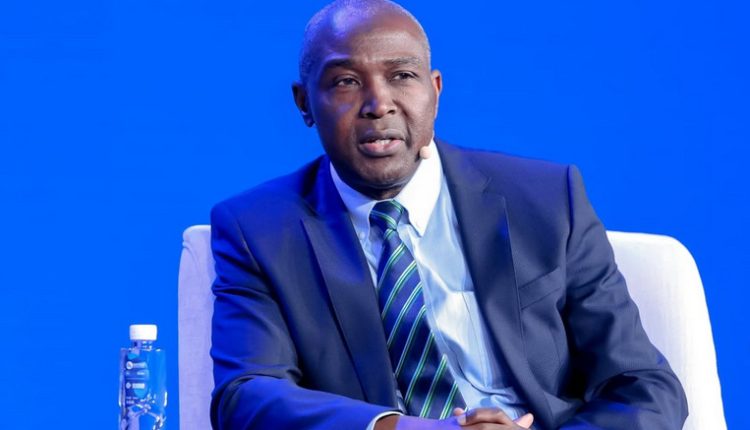NLNG CEO Mshelbila Outlines Strategic Approach to Tackle Methane Emissions in Energy Sector
By Ndubuisi Micheal Obineme
…highlights the misconception of methane emissions in the oil and gas industry.
…says NLNG deployed an oil and gas compressor to capture methane leaks back into the system.
Nigeria LNG Limited CEO, Philip Mshelbila, has outlined a strategic approach to tackling methane emissions in the energy sector, with an emphasis on addressing the misconception surrounding methane emissions, which has been widely reported in the oil and gas industry, as well as its climate impact on the environment.
Speaking to Gastech 2025 delegates at a panel session titled “Advancing Progress on Methane Abatement Through Strategic Cooperation and the Mobilization of Finance and Technologies,” the NLNG CEO revealed the root causes of methane emissions, highlighting other sectors, including agriculture, as one of the highest contributors of methane to the climate and environment.
The NLNG CEO noted there have been misconceptions regarding the methane emissions reported in the oil and gas industry.
He said the oil and gas industry only contributes 21% of methane emissions in the atmosphere.
However, he revealed that methane emission also occurs naturally and in different forms across industries, which requires a strategic approach to prevent them from escalating into the atmosphere.
He said, “Out of the 100% methane in the atmosphere, only 21% comes from the oil and gas industry.
“40% of methane comes from the agriculture sector. Methane occurs in livestock farming and rice growing, among others. They are the biggest contributor to methane in the atmosphere.
“40% of the methane in the air occurs naturally from natural incidents, biological processes, and through the ocean.”
In addition, Mshelbila said methane also occurs through pathogenic activities carried out by human beings.
According to him, “60% methane is pathogenic, created by human beings. There’s another 20% methane that comes from organic, liquid, or other forms of waste products.
“35% of the 60% is what comes from fossil fuels, and only 21% comes from the oil and gas industry.
“Within the fossil fuel industry, methane also comes from coal mining, and the rest comes from oil and gas.
“Within the oil and gas industry, you have gas flaring released into the atmosphere.
“There are also fugitive releases when methane escapes from pipelines.
“The final methane contributor is combustion. When there is an incomplete combustion from a system, that is when methane is released,” he explained.
He emphasized the need to tackle methane across industries, including the agriculture sector, waste management, and other methane sources.
“If we don’t tackle methane in agriculture, waste management, and others, all our efforts will focus mainly on the 21% methane emission in the oil and gas industry.”
Mshelbila stressed that the strategic approach in dealing with methane starts with prevention, detection, measurement, monitoring, and reporting.
On the other hand, he stated that intervention methods are also needed to tackle methane emissions.
“As always, we should focus on the prevention of methane from our plants and facilities to minimize methane leaks,” he reiterated.
On existing assets, the NLNG CEO noted that upgrading facilities would eventually prevent methane that may occur from there.
Speaking about methane detection and measurement, he stated that this process requires technological solutions to detect and measure the methane leaks from the facilities.
“If you can’t measure methane, you can’t know how you are performing,” he said.
Mshelbila re-echoed that methane release can be prevented from entering the atmosphere through preventive methods.
He advocated for collaboration and knowledge sharing between operators and technology providers in finding the best practices and technologies to prevent methane emissions in the oil and gas industry.
He also mentioned that satellite technologies would be beneficial to the oil and gas industry in preventing and monitoring methane leaks into the atmosphere.
“If we can deal with methane, we will have a much bigger impact on climate change.
“Methane is energy as long as you keep it in the pipeline. The moment methane is outside the system, we have all the environmental issues and climate impact.”
He stated that NLNG took deliberate actions in the prevention, detection, measurement, monitoring, and reporting of methane to ensure that the company understands its baseline on methane emissions, as well as detect methane leaks from its system and carry out the necessary interventions.
“At NLNG, we have been able to reduce Nigeria’s gas flaring by over 40% through capturing and monetizing the methane from the gas flaring,” he revealed.
“We have invested in an oil and gas compressor, which will capture the oil and gas methane and put them back into our system. All of that would have been flared in the past.
“NLNG has also signed up for the OGMP 2.0 Gold Standard,” he added.



